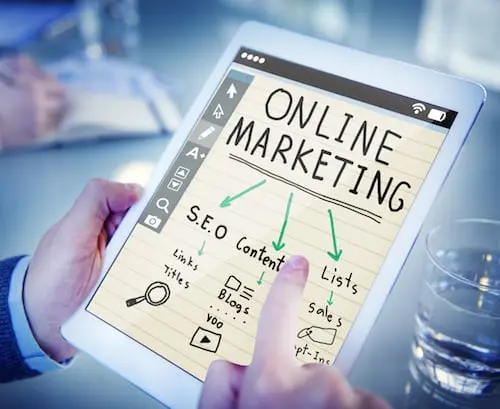

You may think you know your fair share of best Search Engine Optimization practices but what you might not know is that Local SEO differs some from General SEO. How different could it be? Well, there are some elements that they share and some they don’t, but when it comes to the success of your business this can actually mean a whole lot.
First and foremost it is important to know your audience and with this comes knowing that the kind of SEO you need is based on the type and size of your business. A multi-practitioner business like a doctor or lawyer needs a different marketing strategy than a home-based or single-location business, a major difference between general SEO and local SEO is how you target your customers. Knowing your audience and demographic is key in any good marketing campaign.
However, not all SEO strategies are created equal, and what works for one business may not be the best fit for another. In this blog post, we’ll explore various types of SEO and help you determine which one is right for your specific business needs.
On-Page SEO:
On-page SEO focuses on optimizing individual web pages to rank higher and earn more relevant traffic in search engines. This type of SEO includes:
Keyword Research: Identifying the most relevant keywords for your business and incorporating them naturally into your content.
High-Quality Content: Creating engaging, informative, and valuable content that meets your audience’s needs.
Meta Tags: Optimizing meta titles, meta descriptions, and header tags for better search engine visibility.
Image Optimization: Compressing and properly naming images for faster page loading and improved user experience.
On-page SEO is suitable for businesses that want to improve the visibility of their existing web pages and enhance the user experience on their site.
2. Off-Page SEO:
Off-page SEO focuses on activities that occur outside your website to improve its online reputation and authority. This includes:
Link Building: Acquiring high-quality backlinks from authoritative websites to boost your site’s credibility.
Social Media Marketing: Building a strong presence on social media platforms to increase brand awareness and engage with your audience.
Influencer Marketing: Collaborating with influencers in your niche to promote your products or services.
Online PR: Managing your online reputation and handling any negative reviews or mentions.
Off-page SEO is beneficial for businesses looking to establish their brand authority and credibility in the online space.
3. Technical SEO:
Technical SEO focuses on optimizing the technical aspects of your website for better search engine performance. This includes:
Website Speed: Ensuring your website loads quickly on all devices.
Mobile Optimization: Making your site mobile-friendly and responsive.
Site Structure: Improving site architecture for easier navigation and indexation.
Schema Markup: Adding structured data to help search engines understand your content better.
Technical SEO is essential for businesses that want to ensure their website is search engine-friendly and easy for both users and search engines to navigate.
4. Local SEO:
Local SEO targets local customers and aims to improve your business’s visibility in local search results. Key components of local SEO include:
Google My Business Optimization: Creating and optimizing your Google My Business listing.
Local Keyword Optimization: Incorporating location-based keywords into your content.
Online Reviews: Encouraging positive reviews and managing your online reputation.
Local Link Building: Acquiring backlinks from local directories and websites.
Local SEO is ideal for brick-and-mortar businesses or those that serve a specific geographic area.
5. E-commerce SEO:
E-commerce SEO is tailored to online stores and involves optimizing product listings and categories. Key strategies include:
Product Descriptions: Writing compelling and informative product descriptions.
Category Structure: Organize your product categories for easy navigation.
User Reviews: Encouraging and managing customer reviews.
Schema Markup for Products: Using structured data to enhance product search results.
E-commerce SEO is essential for businesses that sell products online and want to increase their online visibility and sales.
SOME TIPS TO HELP BOOST YOUR LOCAL SEO INCLUDE BUT ARE NOT LIMITED TO:
LINKS
One of the top ranking factors according to Google is what you hyperlink in your content. Hyperlinking your content to relevant and or high-authority pages is imperative, especially when it comes to local SEO. An example of this would be hyperlinking the town of where your business is located from Google Maps where you mention the location of your business.
BLOGS
Writing blogs about your business is great but be sure to include tips and elements that would apply to your demographic, the season, and relevant to your location. Having content on your site relevant to seasonal trends and events in your area will in turn help your rankings on the local level.
WEBPAGES
So you have a website built with all the bells and whistles. Now what? Keep in mind the content on these web pages also helps drive local SEO. Having your name, address, and phone number on your homepage, about page, and contact page with a Google Maps image will help optimize your site for discovery on search engines.
The right SEO strategy for your business depends on your goals, target audience, and industry. In many cases, a combination of these different types of SEO may be necessary to achieve the best results. It’s also important to stay updated with the latest SEO trends and algorithms to ensure your strategy remains effective. Consider consulting with an SEO expert in Westchester, NY to tailor a strategy that aligns with your specific business needs and objectives. Remember, SEO is not a one-size-fits-all solution, so choose the approach that best suits your unique circumstances.

